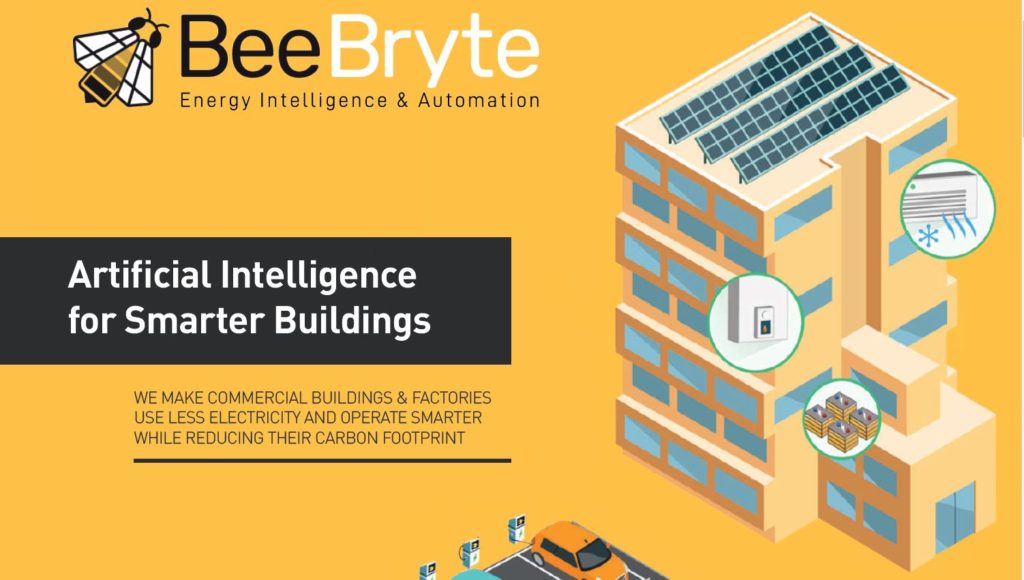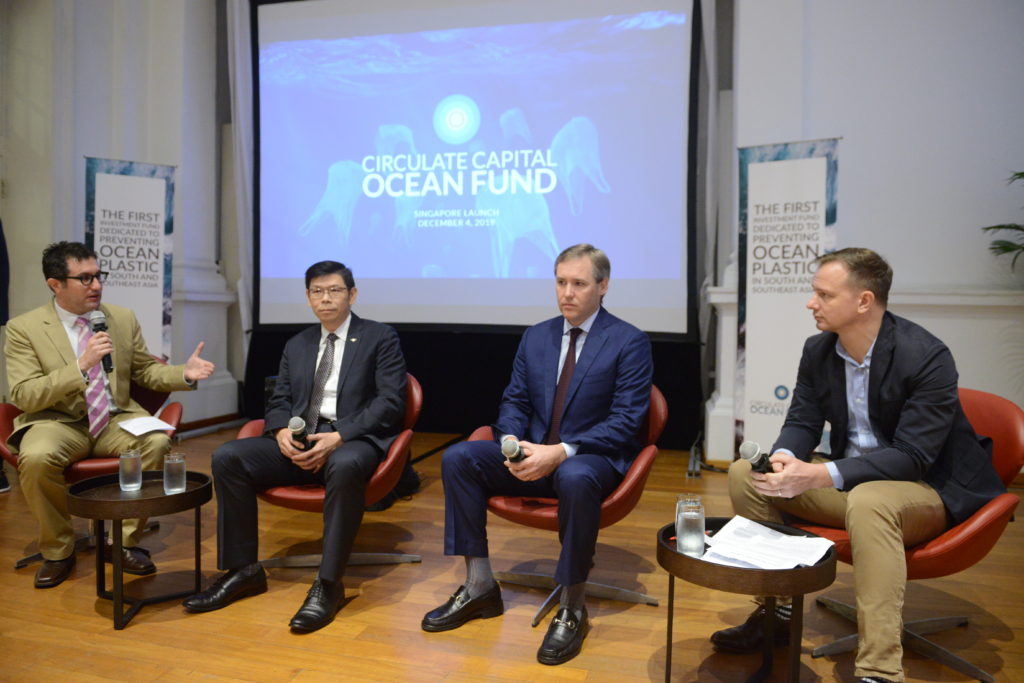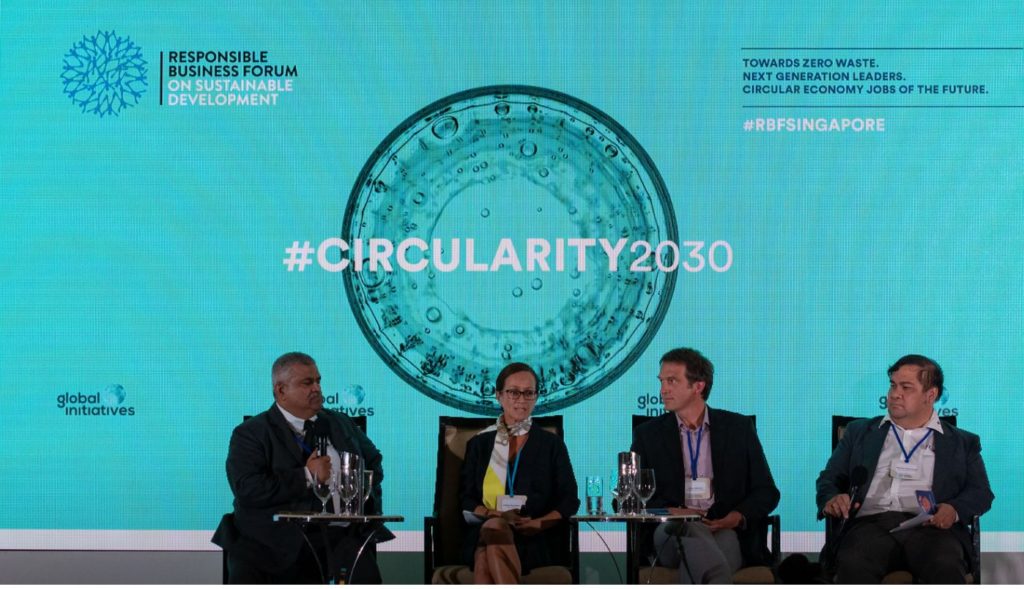Asia’s textile industry is booming, accounting for 46 percent share of the manufacturing market. The strong presence of fabrics, apparel manufacturing and home furnishing facilities in the region are contributing factors to this growth.
Along with the growing market trends, the textile industry faces constant pressure to meet consumer demand for greener production and more transparency at every stage of the value chain. Traditional production processes, as such, are being phased out and replaced with new and innovative technologies focused on shortening the fashion cycle with minimal environmental impact. From repurposing waste to fabric, ensuring cleaner air for production to minimising wastewater, the textile industry is embracing elements of eco-innovation in its pursuit of sustainable production.
Fabric upcycled from waste
The throw-away culture among consumers, cultivated by fast fashion and rapid plastics production prompted Italian recycling company, Aquafil to develop ECONYL®, a nylon fabric made from discarded fishing nets, fabric scraps and other waste. Resembling traditional nylon in quality and physical properties, ECONYL® can be recycled multiple times.
The process involves chemically breaking down plastic waste to its core units, or polymers, before re-assembling back into ECONYL®. The nylon reduces over 50 percent of the CO2-equivalent emissions. The fabric is lauded for its high level of traceability as information about its sourcing and production processes are publicly available. Renowned luxury brands like Prada, Gucci and Burberry are already introducing the upcycled fabric into their products. Prada plans to replace its nylon collection with ECONYL® by 2021, turning the short life of disposable materials into a long-run recycling regime for consumers to adopt.
Pure air for clean production
Like many other plants, air quality is a major concern for the textile industry due to the presence of moisture, dust particles, oil and solid contaminants that adversely affect air quality. For textile manufacturing, compressed air serves as an energy source in production processes such as the operation of air jet looms and spinning. The S-3 and S-4 series of screw compressors developed by BOGE Kompressoren, a leading compressed air specialist, are the ultimate solution to cost-effective operations.
BOGE’s oil-free compressor systems offer several advantages – they are clean, non-toxic and can transfer large amounts of energy simultaneously. The oil-lubricated compressed air reduces friction, prevents corrosion and wear-out of woven actuators in machinery, thereby increasing their lifespan. BOGE’s integrated compressed air treatment systems can also be equipped with advanced abilities to remove oil, water and dust particles entirely for clean-air production where necessary.
Zero wastewater and chemicals
For every 1 kg of coloured apparel, traditional textile dyes require between 95 to 150 litres of water, resulting in tremendous toxic waste. Dutch company DyeCoo’s waterless and dryless process for dyeing cloth is both time- and cost-efficient. A single DyeCoo dyeing machine saves 32 million litres of water and 176 tons of processing chemicals annually.
DyeCoo uses patented technology to dye fabrics with CO2 instead of water. Its highly pressurised mechanism recycles carbon dioxide at a “supercritical” state – the midpoint between liquid and gas above 31.3 Celcius. Dyes dissolve easily into the highly soluble material, penetrating deep into the fibres without water or bonding chemicals, creating vibrant colours with no excess toxins. Ninety-five percent of the evaporated carbon dioxide is then recycled back in the closed loop cycle. Nike, Adidas, and Ikea are among the key brands working with DyeCoo to develop sustainable and innovative methods to drive business growth.
Smart, safe, sustainable
As fashion and textile interweave into the future, labour-intensive manufacturing will continue to undergo major transitions towards smarter textile production. A holistic approach, incorporating eco-friendly designs, innovative materials and processes, optimisation of resource consumption and recycling is the way forward to making textile processing safer, cleaner and more sustainable.
 BeeBryte developed a data-driven HVAC control & optimization software for increased energy efficiency, reduced utility bill and maximized comfort at no cost thanks to AI prediction and patented technology.
BeeBryte developed a data-driven HVAC control & optimization software for increased energy efficiency, reduced utility bill and maximized comfort at no cost thanks to AI prediction and patented technology.

 Green In Future was one of the invited media for this year’s Responsible Business Forum hosted by Global Initiatives on 18 – 19 November at ST Regis, Singapore. The Forum aimed for #Circularity2030, where companies should focus on accelerating the global circular economy and strengthening partnerships to create more circular innovations, thus eliminating waste.
Green In Future was one of the invited media for this year’s Responsible Business Forum hosted by Global Initiatives on 18 – 19 November at ST Regis, Singapore. The Forum aimed for #Circularity2030, where companies should focus on accelerating the global circular economy and strengthening partnerships to create more circular innovations, thus eliminating waste. Green In Future was honoured to be media partner of The second
Green In Future was honoured to be media partner of The second
